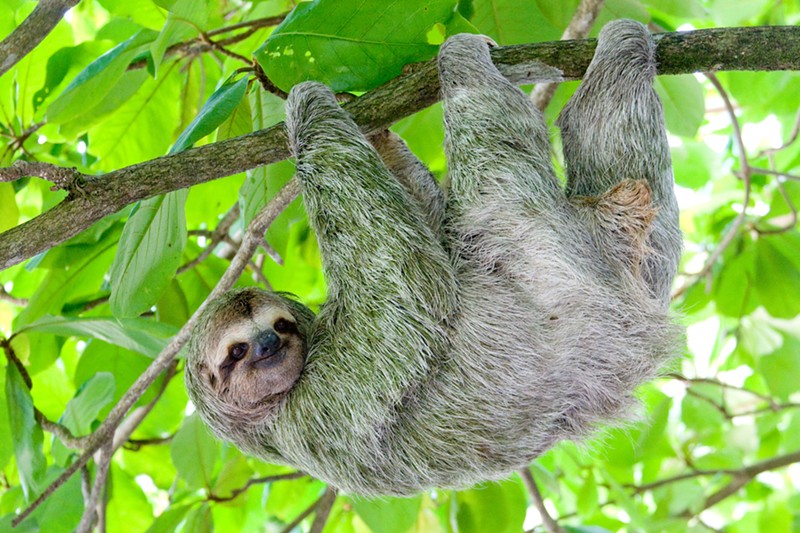Spoiler alert: It sounds way cuter than it is.
A number of travelers arriving in South Florida have been found to be infected with Oropouche virus disease (also known as "sloth fever").
A recent Florida Department of Health report found 14 cases in Miami-Dade County, five in Broward County, and two in Palm Beach County as of August 24.
All the cases involve people who recently traveled to Cuba, which reported its first confirmed case of the virus in June.
Though there's no evidence that the disease is spreading within the U.S., officials have warned doctors to be vigilant for signs of the infection in travelers returning from Cuba and South America.
Symptoms include fever, myalgia, and headache, often accompanied by diarrhea, nausea, or vomiting. The virus is not thought to be fatal, but the CDC warns that it can lead to complications that might be life-threatening.
First detected in 1955 in a 24-year-old forest worker on the Caribbean island of Trinidad, Oropouche earned the nickname "sloth fever" after scientists discovered it in three-toed sloths. They believed the slow-moving animals were vital in the virus' spread from insects to mammals.
Native to forested tropical areas, the virus spreads to humans via small biting flies and certain types of mosquitoes. According to the U.S. Centers for Disease Control and Prevention (CDC), about 8,000 cases have been reported since late 2023, many of them in South America.
The virus has also reached Europe, where health officials previously confirmed 19 cases, nearly all among travelers.
There are no vaccines or medicines to treat the virus, according to the CDC.
“Until advancements are made in vaccine development or mosquito and midge control, or until natural immunity within the population increases, the challenge posed by this neglected tropical disease will persist,” Enny Da Paixao Cruz, associate professor at the London School of Hygiene and Tropical Medicine, recently told the Washington Post.
This is a breaking story and will be updated as events warrant.

Audio By Carbonatix
[
{
"name": "Air - MediumRectangle - Inline Content - Mobile Display Size",
"component": "19274298",
"insertPoint": "2",
"requiredCountToDisplay": "2",
"watchElement": ".fdn-content-body",
"astAdList": [
{
"adType": "rectangle",
"displayTargets": "mobile"
}
]
},{
"name": "Editor Picks",
"component": "17482312",
"insertPoint": "4",
"requiredCountToDisplay": "1",
"watchElement": ".fdn-content-body",
"astAdList": [
{
"adType": "rectangle",
"displayTargets": "desktop|tablet"
},{
"adType": "rectangle",
"displayTargets": "desktop|tablet|mobile"
}
]
},{
"name": "Inline Links",
"component": "18711090",
"insertPoint": "8th",
"startingPoint": 8,
"requiredCountToDisplay": "7",
"maxInsertions": 25
},{
"name": "Air - MediumRectangle - Combo - Inline Content",
"component": "17482310",
"insertPoint": "8th",
"startingPoint": 8,
"requiredCountToDisplay": "7",
"maxInsertions": 25,
"watchElement": ".fdn-content-body",
"astAdList": [
{
"adType": "rectangle",
"displayTargets": "desktop|tablet"
},{
"adType": "rectangle",
"displayTargets": "desktop|tablet|mobile"
}
]
},{
"name": "Inline Links",
"component": "18711090",
"insertPoint": "8th",
"startingPoint": 12,
"requiredCountToDisplay": "11",
"maxInsertions": 25
},{
"name": "Air - Leaderboard Tower - Combo - Inline Content",
"component": "17482313",
"insertPoint": "8th",
"startingPoint": 12,
"requiredCountToDisplay": "12",
"maxInsertions": 25,
"watchElement": ".fdn-content-body",
"astAdList": [
{
"adType": "leaderboardInlineContent",
"displayTargets": "desktop|tablet"
},{
"adType": "tower",
"displayTargets": "mobile"
}
]
}
]












